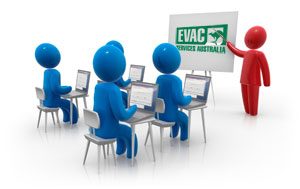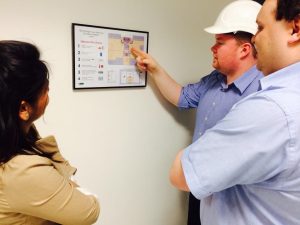Safety Matters with Dr Paul
Information, Instruction and Training

The Queensland Work Health and Safety Act 2011 places an obligation on a Person Conducting a Business or Undertaking (PCBU) to provide and maintain a safe and healthy workplace as far as is reasonably practicable. This obligation includes providing any information, instruction, training or supervision that is necessary to protect people from risks to their health and safety (section 19, part 3f).
Queensland’s Work Health and Safety Regulations 2011 prescribes the information, instruction and training requirements (section 39). The PSBU must ensure that information, instruction and training is suitable and adequate having regard to:
- The nature of the work carried out by the worker
- The nature of the risks associated with the work at the time the information, instruction and training is provided
- The control measures implemented
The PCBU must ensure, so far as is reasonably practicable, that the information, instruction and training is provided in a way that is readily understandable by any person to whom it is provided. This also applies to contracted labour engaged to work at the workplace.
The consultation obligations in the Act requires the PCBU to ensure that the views of workers are taken into account before making decisions on how the information, instruction and training is provided to the workers.

Young workers are more at risk of a work related injury and have special needs beyond those of other workers. Supervisors of apprentices, trainees and other young workers must be aware that:
- Young workers need a higher level of supervision and training than qualified workers
- 1st year apprentices and trainees are at the greatest risk and need a high level of supervision and instruction
- Even 4th year apprentices need an appropriate level supervision and instruction to ensure they perform their work safely
- Apprentices and trainees have a lower level of skill, knowledge and experience. Don’t assume they know how to do a job and the required safety precautions
- Young workers are less likely to speak up, ask questions and clarify instructions
- They may lack confidence or fear being thought of as not coping
- Young workers may pick up bad habits from co-workers. This should be monitored and work practices corrected
- They should not be criticised or teased for not knowing something or doing a job wrong. It is an opportunity to provide the correct information and show them how to do the job correctly and safely
Relevant documents and records could be worker induction and training records; Safe Operating Procedures (SOPs); Safe Work Method Statements (SWMS); worker competency records and licenses; toolbox talk attendance records; risk assessments performed; and details of external programs attended.
This article provides general information only and should not be a substitute for seeking professional advice regarding your specific situation.
Dr Paul will be contributing regular articles to assist and advise PCBUs and their workers on the management of health and safety.

